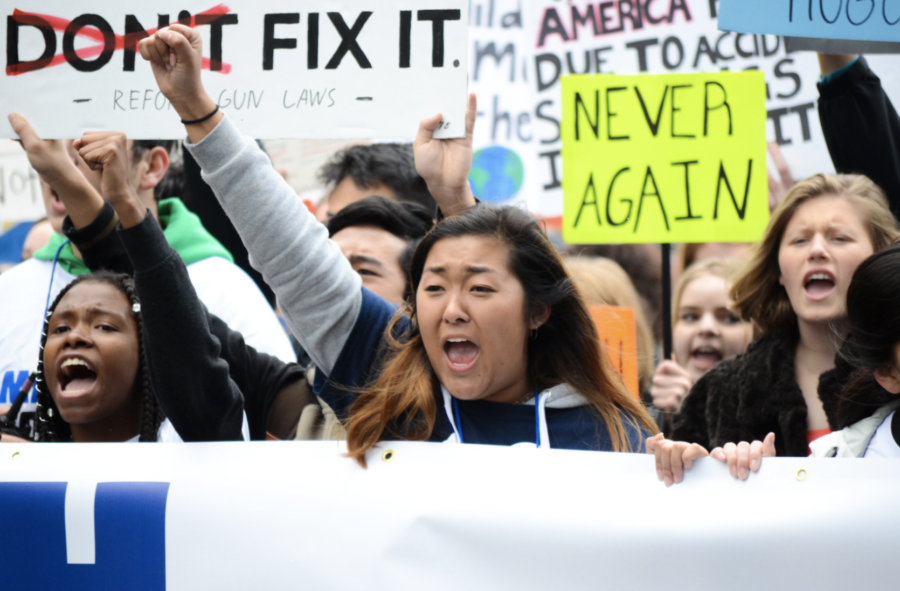Eighteenth birthdays are big milestones for many reasons. For many Americans, one of the most important reasons is the new ability to vote and directly influence the decision on who should be running our country.
The voting system in the United States, however, does not limit itself to one national presidential election every four years. Aside from voting in countless other local, state and even national elections, we, as Americans, have the ability to choose who will ultimately represent our respective political parties during the general election. Unfortunately, many recent 18-year-olds find that their birthdays fall after the primary elections, but before the general election; as a result, they have a say in who will ultimately run our country, but they have no say, unlike their voter counterparts, in which candidate will represent them and their interests in the general election. In simpler terms, voters who are 17 during the primary election and 18 during the general election have less of a say than other voters in our democracy.
California Proposition 18, also known as the “Primary Voting for 17-Year-Olds Amendment,” is on the ballot this election cycle in an attempt to address this issue of voter discrepancy. According to Ballotpedia, “A ‘yes’ vote supports this constitutional amendment to allow 17-year-olds who will be 18 at the time of the next general election to vote in primary elections and special elections.”
In the words of the California Association of Student Councils, “Young people whose birthdays fall between the primary [and] general election are currently at a disadvantage to those who are permitted to vote in the primaries. Without full exposure to the election process they are unable to submit their most educated vote in the general election. Assembly Constitutional Amendment [four] would ensure that a greater number of citizens voting in the general election have the resources and experience they need to provide the vote that best matches their own values.”
It is argued that getting involved with politics at a younger age will encourage the youth to continue to participate in our democracy for the rest of their lives. In a report written by the Tufts University Center For Information & Research On Civil Learning and Engagement (CIRCLE), “When more—and more diverse—young people are politically engaged earlier in life, they are more likely to remain engaged in the future and to be part of an electorate that is more representative of the country, which should be a key goal of our democracy.” Furthermore, more young people will feel encouraged to vote in the general elections if they feel that there is a candidate that truly represents their values and desires. If this isn’t the case, however, they may be more reluctant to do so. Prop 18 can address this issue and lead to an increased voter turnout.
Considering the fact that governmental policy often has dramatic effects on the youth—environmental policy, for example—all eligible youth should have an equal say in our electoral process. Unfortunately, this is not yet the case. If these newly eighteen-year-old voters didn’t get a say in who they would have as options on the ballot, they’re not getting an equal opportunity to have their voices heard.
The youth have been showing more and more of their power in the last few years, and it’s time that we all had an equal shot of sharing our opinions in the elections, if we are eligible to vote. Yes, a young American may be 17 during the primary election, but if they will be old enough by November, why shouldn’t they get the same chance as all other eligible voters to decide who will represent them in the general election?
One of the most common claims from the opposition is that 17-year-olds “aren’t ready” to vote. This claim is obviously nonsensical for a plethora of reasons.
Some people tend to think 17-year-olds shouldn’t vote because they are still in high school. This may come as a shock to you, but 18-year-olds in high school can, and do, vote.
Opponents of the proposition can go a little deeper with their logic, saying teens are not mature enough to vote for their own future. Well, the British Columbia’s Ministry of Health begs to differ. They say by age 16, most teens “are developing the ability to think abstractly, deal with several concepts at the same time, and imagine the future consequences of their actions.” By 16. They also say cognitive ability “continues to develop into adulthood,” meaning that an average 16-year-old’s brain power will only increase when they turn 17.
In fact, most medical reviews don’t even distinguish development between 17 and 18-year-olds, showing how there is little to no difference between their development. The Stanford Children’s Hospital doesn’t even distinguish cognitive growth between a 17-year-old and an 18-year-old. A study published in the Journal of Neuroscience concluded there isn’t much of a difference in brain development between those ages to differentiate between.
Additionally, those students who are 18 and in high school attend high school with their 17-year-old peers. Since these students already spend so much time together, specifically at least seven hours a day for five days a week, they experience the same learning environment and mature together. The age difference between the 18 year old and 17 year old students within the same grade level is often just by a few months, which is not enough time to show significant elevation in maturity and cognitive development.
Another common argument is “When will it stop? If we move down to 17, then they may keep changing voting age.” This is a reference to the 26th Amendment, which changed the legal voting age from 21 to 18 in 1971. The simple answer to that question is it stops here at age 17. Not every 17 year old in the state will be voting in the primary election and general election. Prop 18 will only allow 17 year olds who will be 18 years old by Nov. 3, Election Day.
Furthermore, arguments supporting the 26th Amendment stated that the voting age should be lowered to 18 because if 18 year olds are mature enough to join the military and risk their lives for the country, then surely they are mature enough to have a voice in who leads the country. That same argument applies here because 17 year olds with parental consent can apply to the military. If 17 year olds are mature enough to enlist in the military, then they are mature enough to have a voice in who their affiliated political party’s nominee should be.
Traditionally, California primaries take place in June; however, they took place in March for the 2020 election. Think about it. That time difference is a mere six to nine months before Election Day. A citizen in their late teens does not show much growth in maturity between 17 and 18 years of age because studies don’t consider 17 and 18 year olds to be wildly different, especially when that citizen has just turned exactly 18.
Given the fundamental importance of voicing one’s opinion in our democracy, as well as our adamant belief that all voters must be given equal opportunity to have their voices heard during election season, the Beverly Media Group Editorial Board urges readers who are eligible to vote to vote in favor of California Proposition 18.
Categories:
Editorial: Proposition 18 provides much-needed equal platform for all eligible voters
October 30, 2020
0
Donate to Highlights
$125
$1000
Contributed
Our Goal
Your donation will support the student journalists of Beverly Hills High School. Your contribution will allow us to purchase equipment and cover our annual website hosting costs.
More to Discover





























